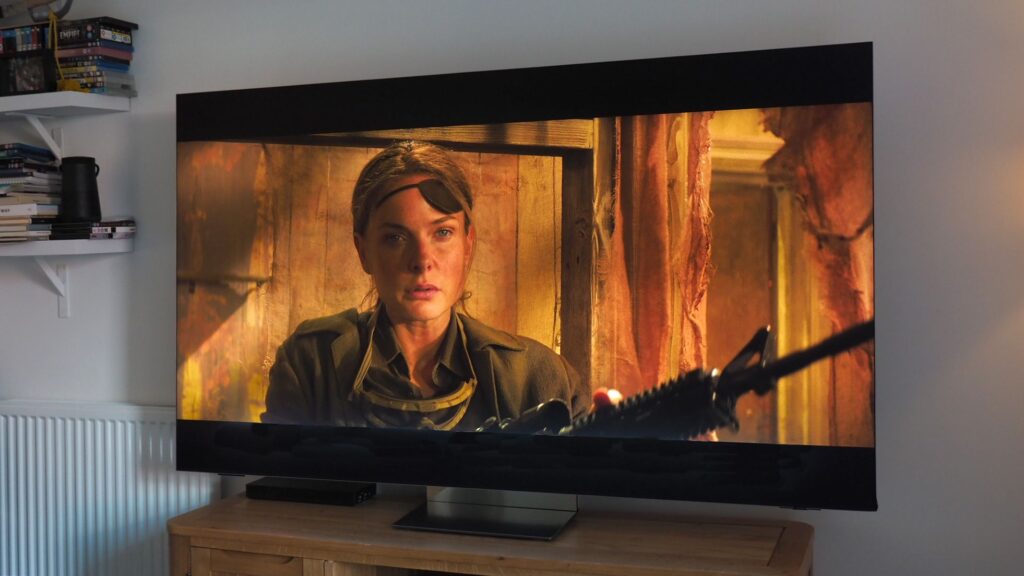Every year when it comes to testing the best TVs, you can be sure that there’ll be a new 8K-resolution set from Samsung – the one and only brand pushing the ‘Ultra-Ultra-HD’ dream – and, sure enough, in 2025 it’s the QN990F on review here.
This is Samsung’s no-holds-barred take on TVs: positioned above the also-8K QN900F, it features a Wireless One Connect Box design, so you can mount the ultra-slender panel onto a wall and, aside from power, have zero cables trailing behind it.
I elected to get the massive 75-inch Samsung QN990F delivered for this review – 65- and 85-inch models are also available (even a 98-inch in the USA) – because, given its 8K nature, it seemed pertinent to get the scale to truly benefit from the 8K resolution.
Nothing’s been the same since its install, but am I convinced that this 8K model is the right direction to take if you’re shopping for a new set? The QN990F has moments of brilliance and moments that don’t quite cut it.
Price & Availability
I’ll start by focusing on the 75-inch model on review here, which is priced at £5,999 / $6,499 / €6,999. It’s a big set with big resolution, costing big money – although, immediately after going on sale, the discounts rolled in, as you can see from the shopping widget embedded above.
Step up to the 85-inch model – which is the only size for the Australian market, at AU$11,999; there’s also a US-only 98-inch model, at $34,999 – and that’s priced at £8,999 / $8,499 / €10,089.
The smaller panel of this model, at 65-inch, which I wouldn’t usually call ‘small’ – but, given its 8K nature, it’ll likely be tricky to sit close enough to gain the resolution benefit. This is priced at £4,499 / $5,499 / €5,359.
What’s New?
(Image credit: Future / Mike Lowe)
Samsung’s naming convention previously had the QN900 model as its top-of-the-line 8K offering. The QN990, with that extra ‘9’? That’s all new for this year. In the QN990F, the ‘F’ signifies it’s a 2025 release. A QN900F is also available – which ditches the Wireless One Connect Box aspect as the main difference.
Otherwise what else does the QN990F deliver over that QN900F model? Well, it has even greater brightness, more dimming zones for heightened control, is a native 120Hz refresh panel (compared to 60Hz), and in addition to the four main HDMI 2.1 ports, has a fifth Micro HDMI 2.1 port on the panel itself.
Design & Connections
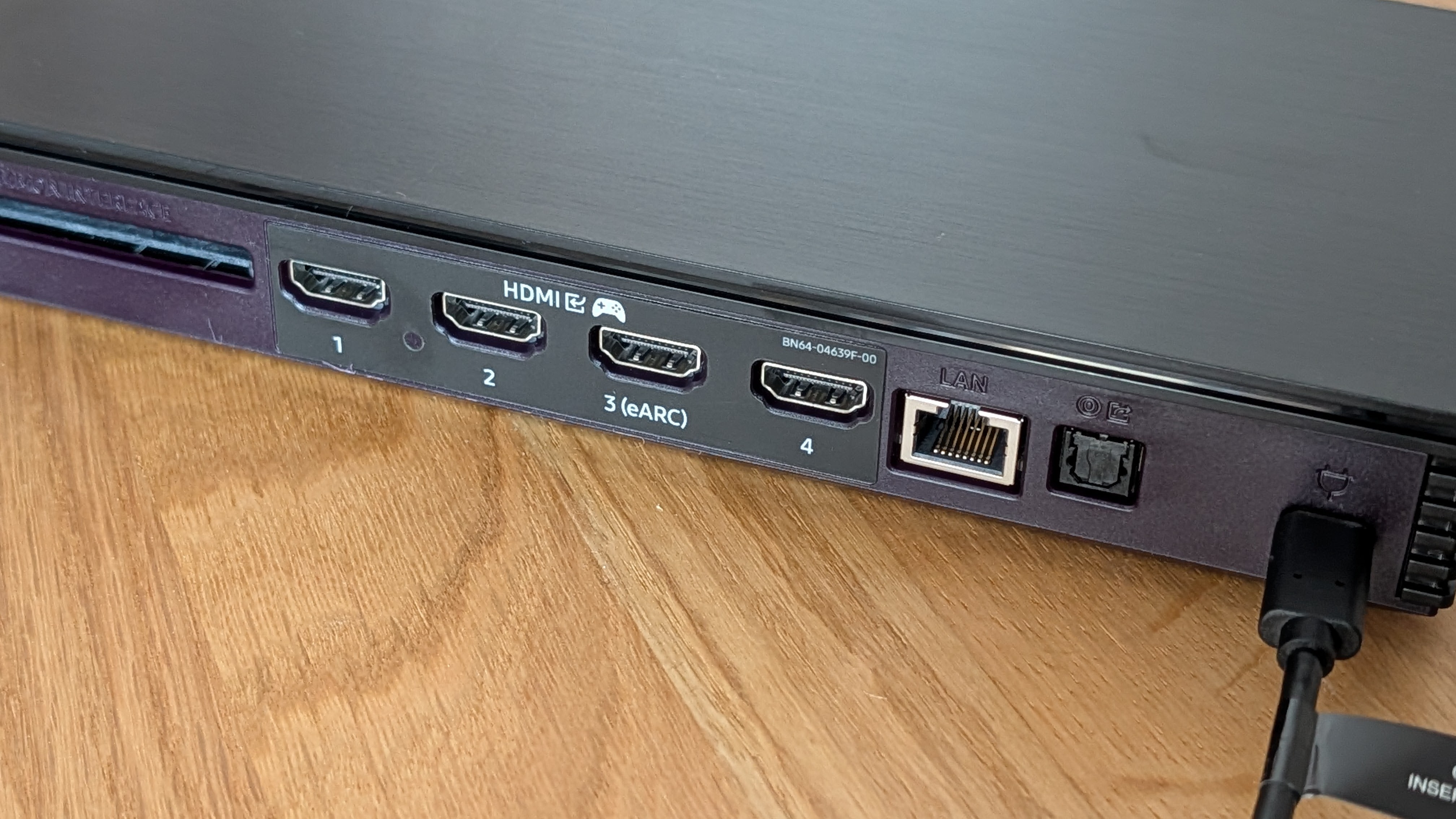
(Image credit: Future / Mike Lowe)
Unboxing a 75-inch TV is nothing short of an ordeal, as most TVs’ stands are added when the panel is in a horizontal position. The QN990F has different ideas, though, with its stand sections designed to be put on when it’s vertically positioned in the box.
There are a number of sections to take note of, though, and building the QN990F is like assembling a 3D puzzle. The Wireless One Connect Box requires a receiver, which is mounted within the rear of the TV – connected using a proprietary port – and positioned over the stand if you’re not wall-mounting.
There’s a separate transmitter box – meaning you’ll need an extra power socket available compared to usual – which looks like a mini PC of sorts. You can position it anywhere you like, within 10 metres of the TV, should you want to have all your set-top box and other hardware out of sight. Just make sure their HDMI cables can plug in to maintain the neat-and-tidy visual.
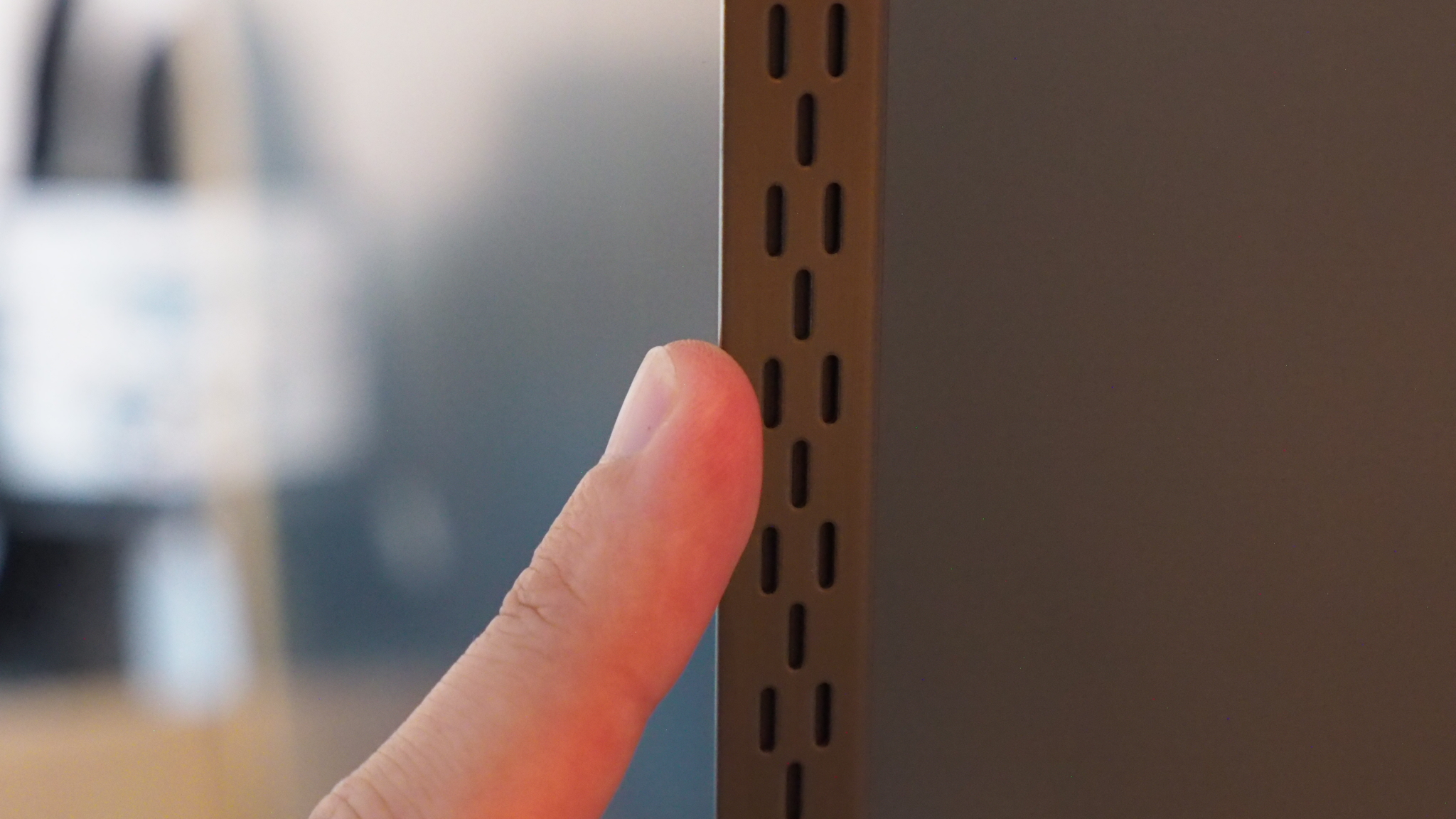
(Image credit: Future / Mike Lowe)
Once everything is assembled, the central pedestal stand – which is rigid, so there’s no left/right rotation for this TV (not that you need it, given the Wireless One Connect Box) – is subtle, finished in a nice metallic exterior. Indeed, that metal aesthetic continues with the trim bezel around the edge. It’s all very classy stuff – as you’d expect from a TV at this kind of asking price.
Ditch the stand, however, and that’s when you’ll see the greatest benefit of the QN990F’s 1.3cm thickness. It’s really slender, so can sit flush to a wall and barely protrude from it – and I’d assume this is the go-to option for this set, as a primary benefit of the Wireless One Connect Box feature.
As is Samsung’s want these days, the QN990F comes with two remote controls in the box. One is full of buttons and rather plasticky looking; the other is slender and solar-charges, but with fewer buttons it can be confusing for some quick-fire changes, such as quickly switching between sources.
Picture Quality
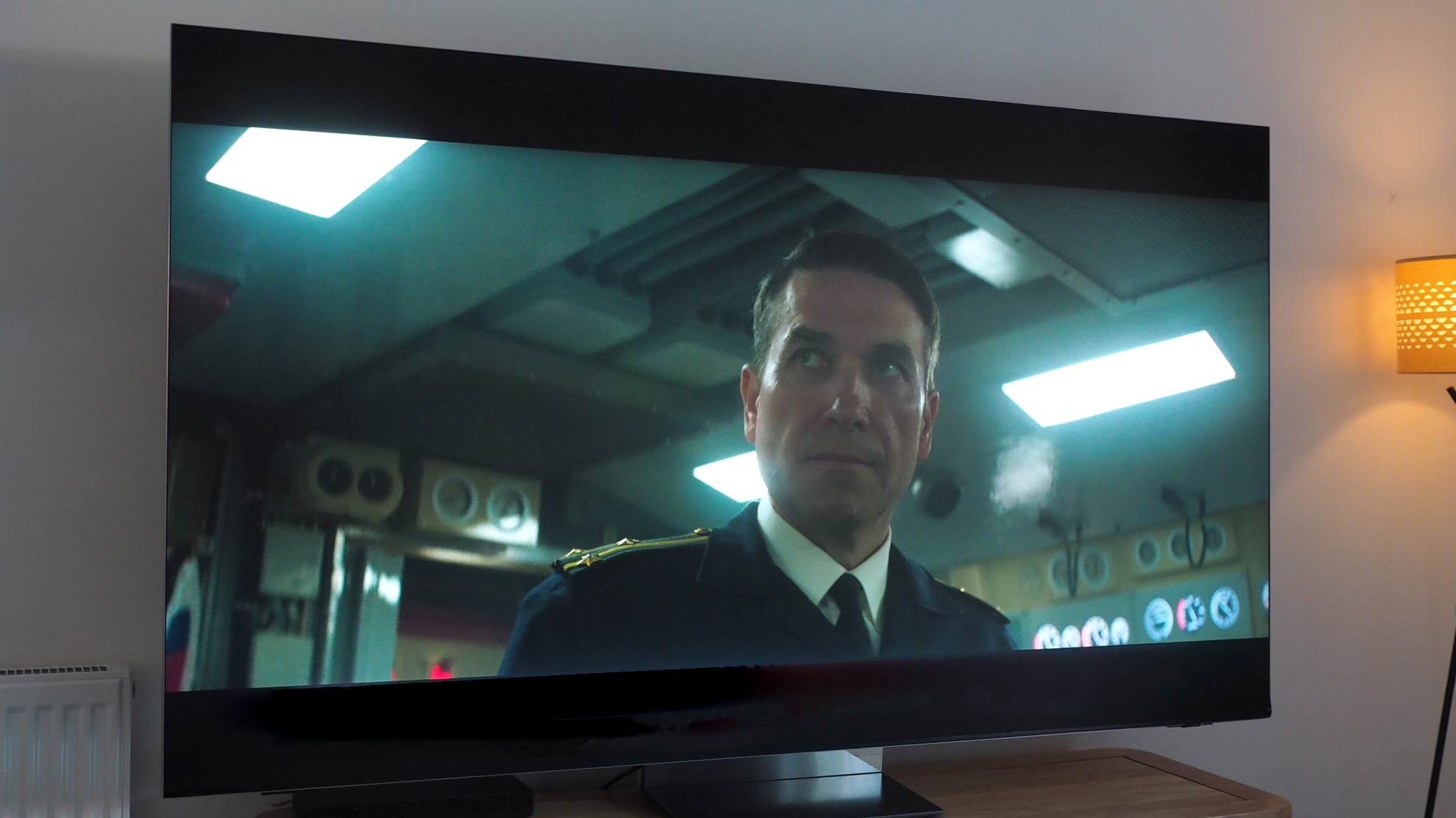
(Image credit: Future / Mike Lowe)
When I first turned the QN900F on, though, that’s when it became clear that Mini LED is all about brightness. Lots of brightness. This panel’s output is astonishingly bright when you need it to be. Although, as many tests have shown, the 900F and even earlier 900D are able to sustain higher output across the full panel.
I noticed this brightness the most when firing up PlayStation 5 and Switch 2 games. The high dynamic range (HDR) calibration – where you have to fade visual emblems on screen until they’re barely visible – had a much greater dynamic range than in any other TV I’ve ever set up.
Which translates, as you’d expect, to pretty insane HDR visuals. No, there’s no Dolby Vision here, as Samsung uses its own HDR10+ format instead, but Dolby Atmos sound decoding is possible. Colours pop, sometimes to excess if you have the enhanced Color Booster Pro activated.
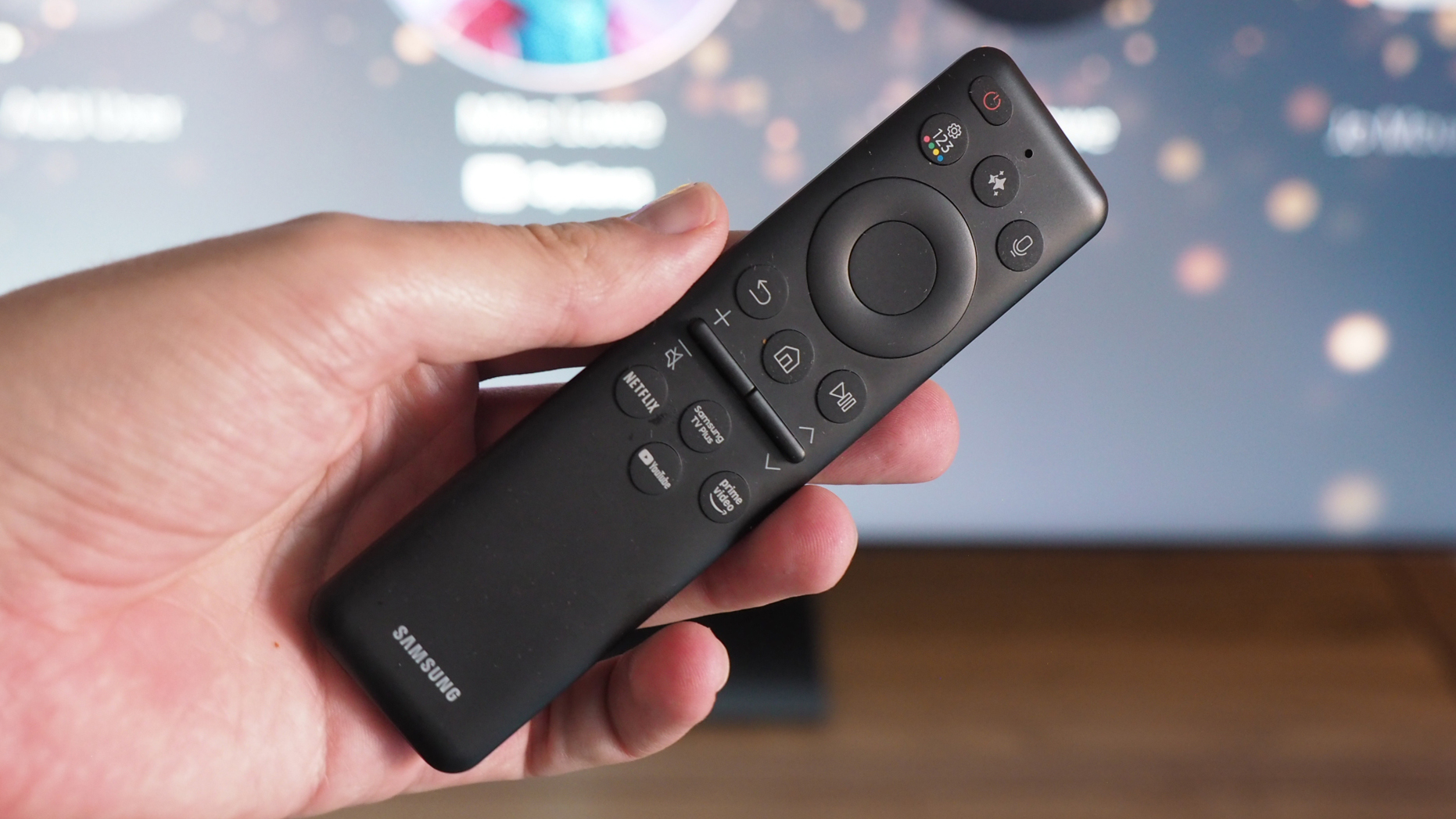
(Image credit: Future / Mike Lowe)
While my game testing was bright, however, it was far from perfect. The Wireless One Connect Box introduces around 37 milliseconds of lag, which is around four times what you’ll find from, say, the LG OLED G5 or even Samsung’s own S95F. That’s not going to cut it for gamers, where that delay between hitting a button and getting a response is integral.
It’s not just input lag, however, as the picture processing isn’t always up to scratch either. This is entirely dependent on Picture Mode and what Settings you select, of course, but I’ve seen juttery motion, some difficulty maintaining edge definition during faster motion, and as this is Mini LED – despite the most dimming zones that Samsung offers in 8K – there’s still some backlight blooming, too.
However, much of this is adjustable with various Picture Mode offerings and there’s even an AI Mode. The latter is fairly ‘all-in’ by default– so can be overbearing for certain content. Sports, however, it’ll keep super-smooth, which is always helpful. And you can ‘train’ this model by selecting from your preferences, delivering an image that suits you.
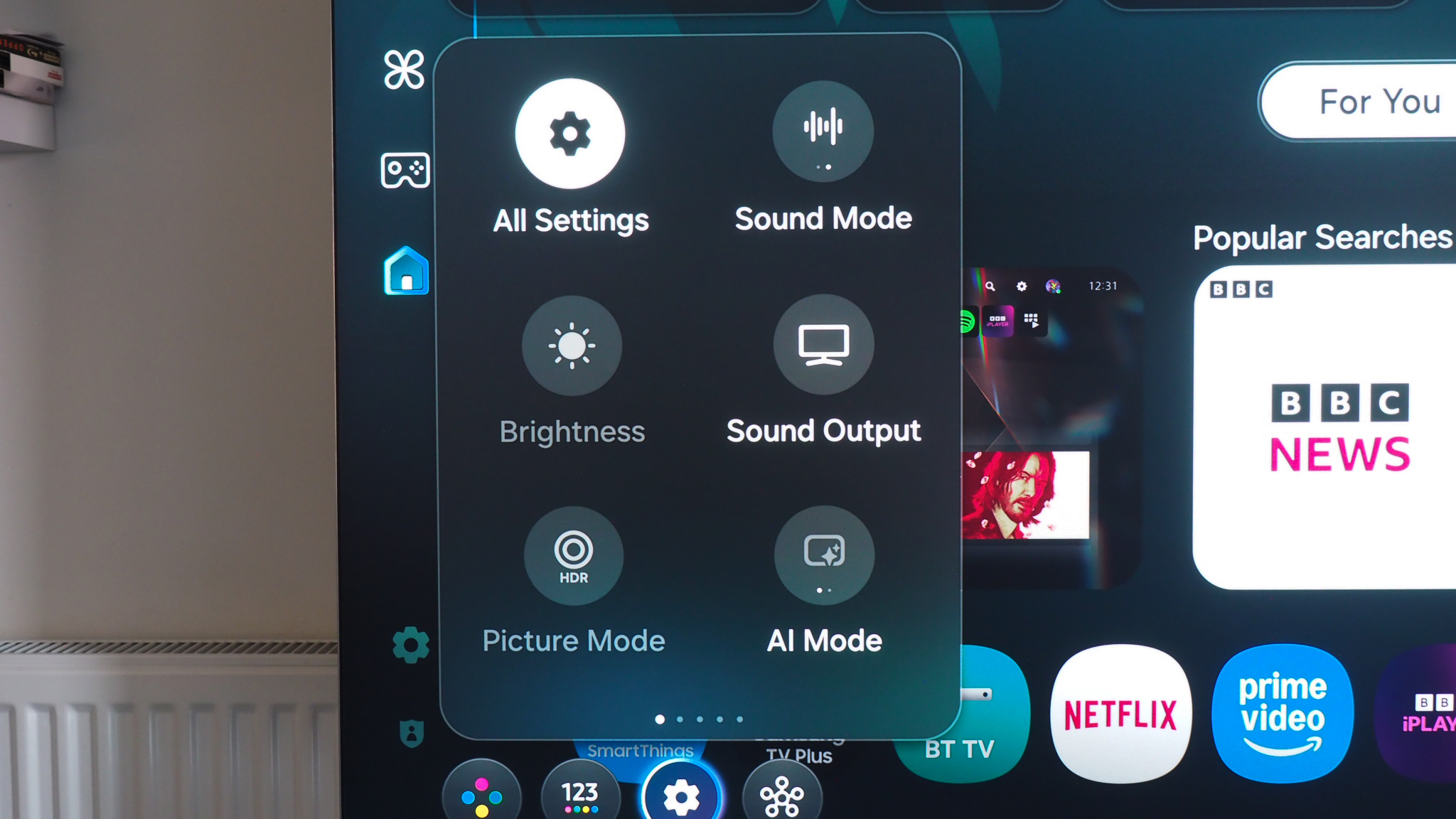
(Image credit: Future / Mike Lowe)
Switch into the most adept mode for your content, however, and results leave a big impression. Provide it with some of the best 4K Blu-ray content, for example, and that upscaling to 8K makes its best of the additional resolution. I’ve watched John Wick look tantalisingly crisp on this panel.
With movies, however, you’ll often want to use the Movie Mode or Filmmaker Mode option, the classic ‘as the director intended’ – which is almost without fail much darker for that cinematic look. The QN900F can deliver this well, too, even if its forte is typically punchier, more dynamic pictures.
I must say that the latest Glare Free coating here is also exceptional. It diffuses reflections to such a point that you’ll barely notice lamps and lights, even at nighttime, causing any interference with the panel. It’s also brilliant for use in bright rooms, therefore, as it can negate big windows, and has the brightness power to offset too.
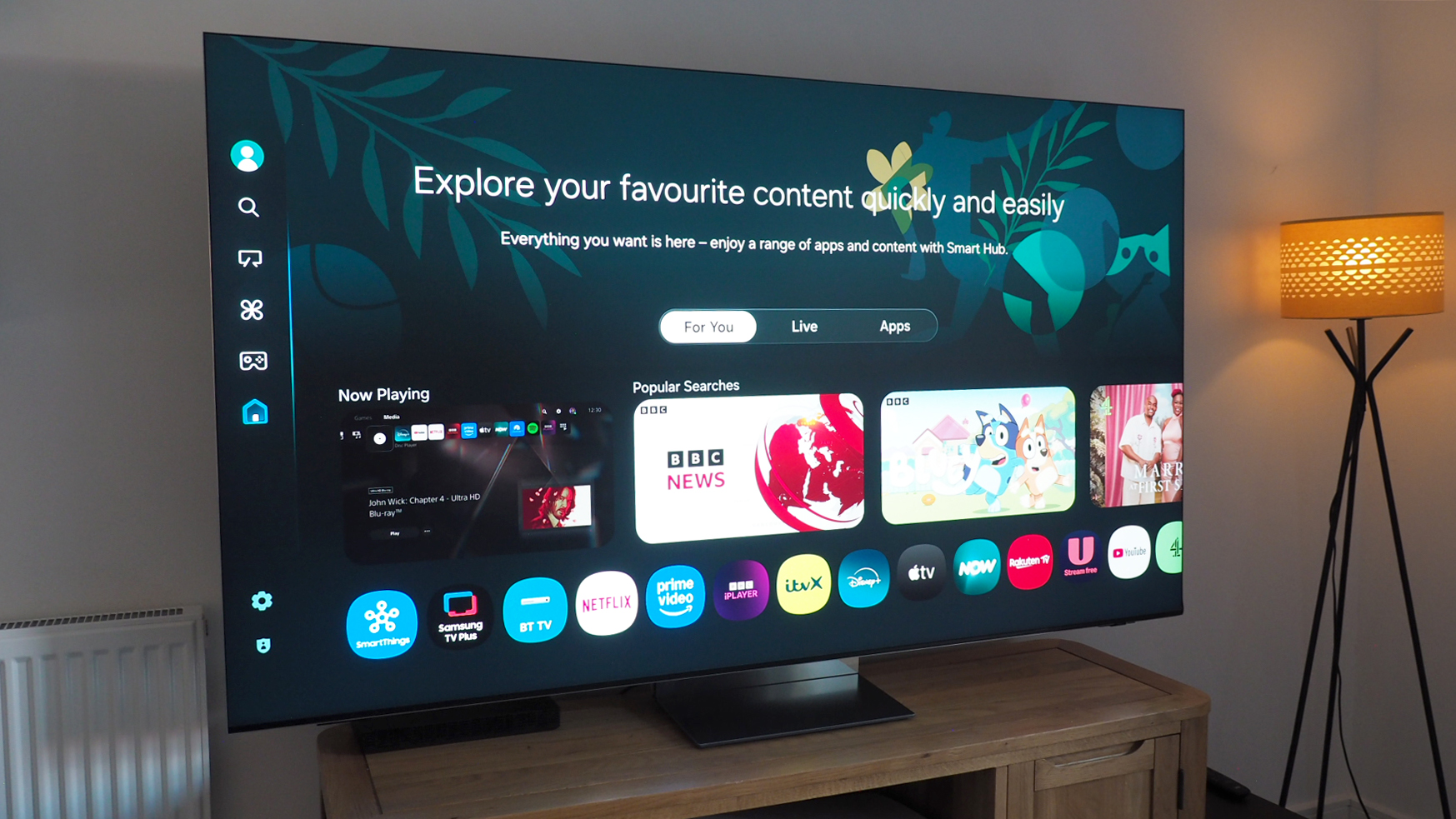
(Image credit: Future / Mike Lowe)
Do you really need 8K though? Not really. At 75-inches you’ll need to sit around 1.4 metres from the panel to perceive the additional count. That’s quite a hard sell. Plus, of course, hardly anything is made or broadcast in 8K at present – and it’s up for debate whether it’ll ever become a standard or expectation.
Sound Quality
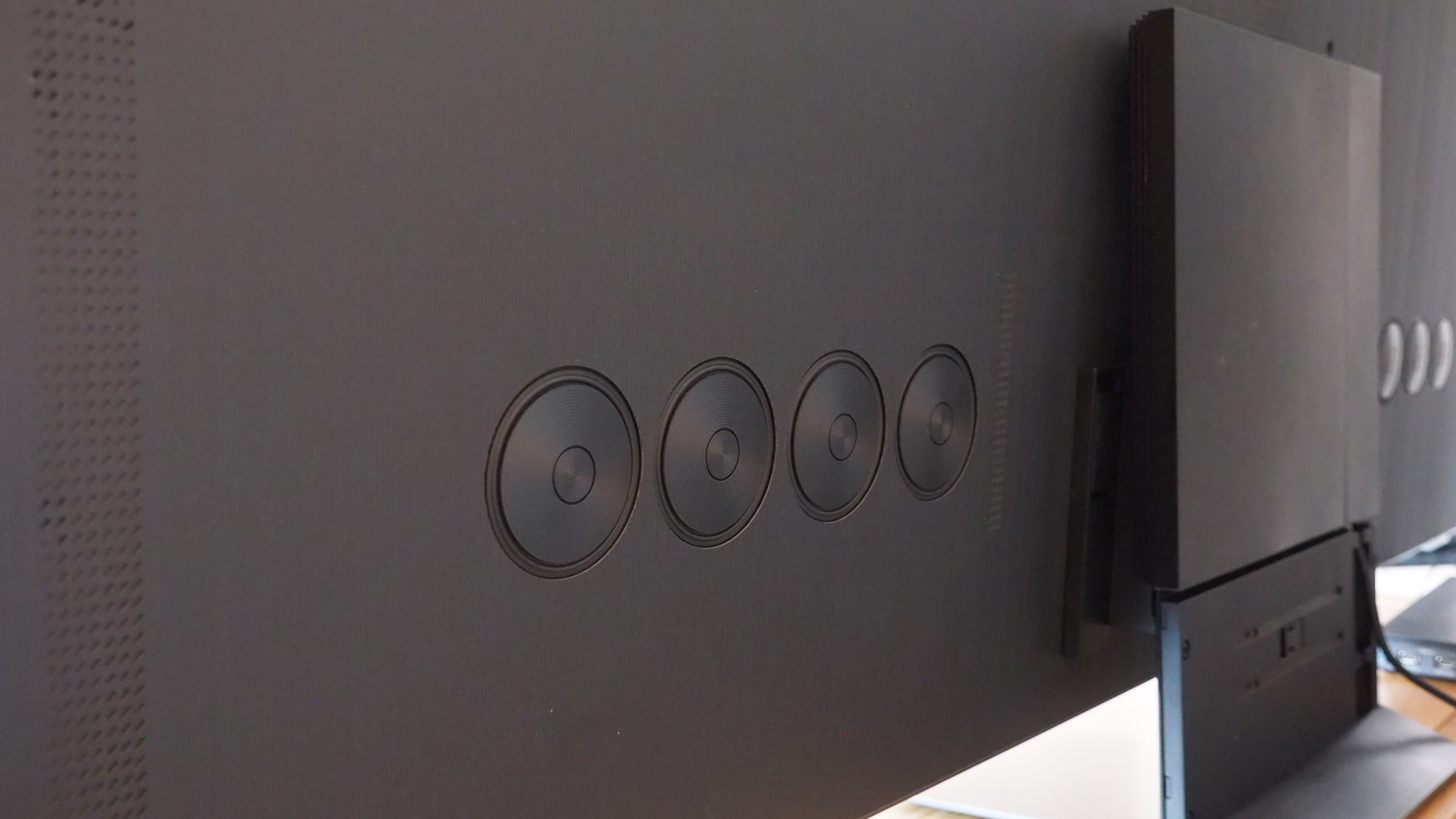
(Image credit: Future / Mike Lowe)
Given the slender nature of this telly, I was pleasantly surprised by how much the integrated speakers are able to deliver. As mentioned, there’s Dolby Atmos decoding, with Samsung’s Object Tracking Sound+ (or OTS+ for short) able to help in delivering height – and making sound placement on screen seem believable, which is really important with larger panels such as this.
However, such a big panel could really benefit from next-level audio, so I can’t help but think one of the best soundbars for Samsung TVs would be well placed here. One, it can offer Q-Symphony, meaning specific Samsung soundbars can utilise their full output in addition with the TV’s speakers. I didn’t test the panel like this, but have with other models in the past – and it’s amazing.
If you’re wall-mounting, however, and want the most minimalistic look – i.e. no wires, no soundbars, no extras anywhere – then I think the QN900F’s default sound is good enough. Its various processing options deliver a wide soundfield – helped by the top- and side-mounted speaker grilles; six larger-scale outputs sit to the rear for some bass output (as part of its 6.2.4 arrangement).
Samsung QN990F review verdict: Is 8K worth it in 2025?
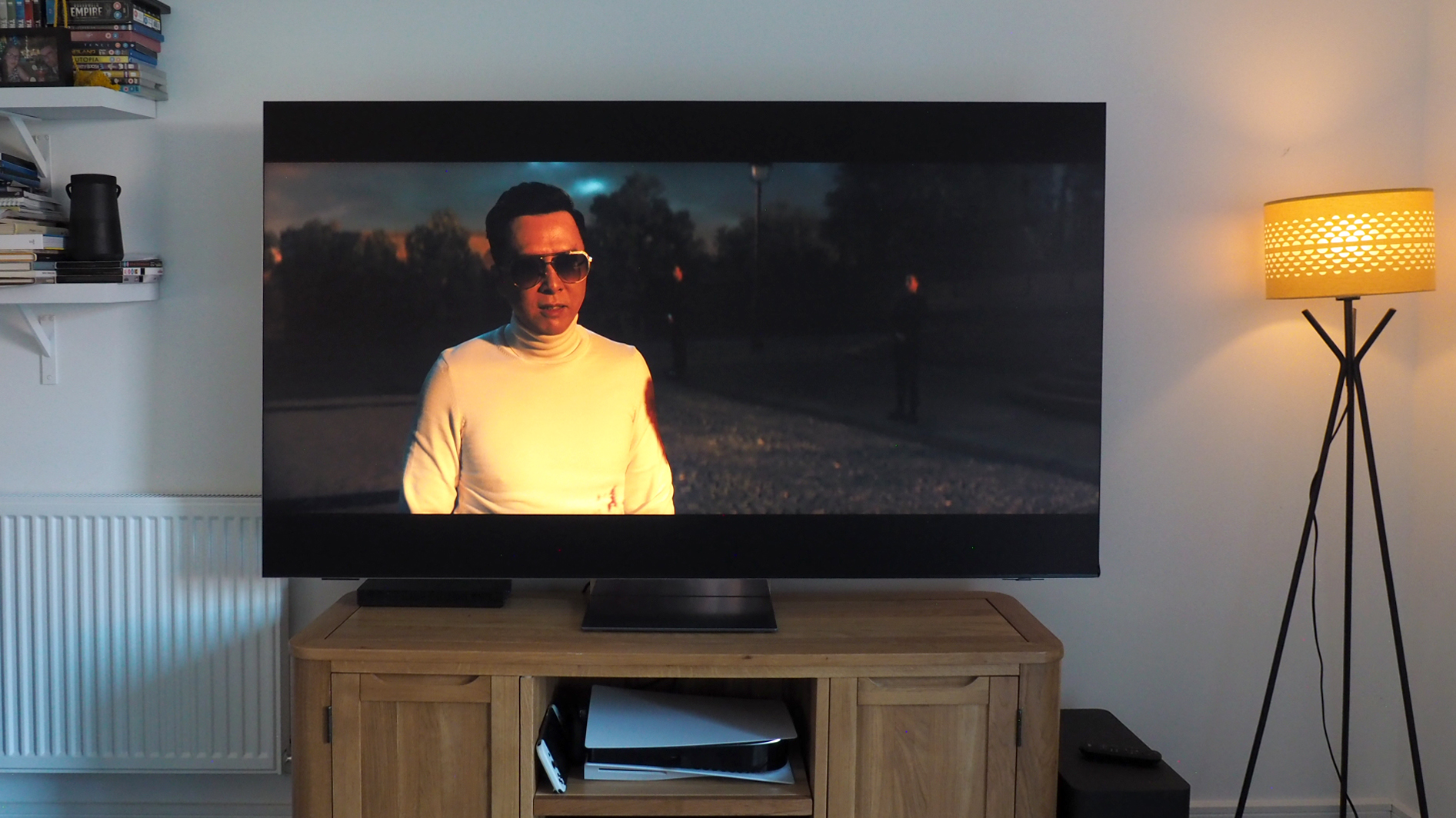
(Image credit: Future / Mike Lowe)
Having found the Samsung S95F superlative when testing it earlier this year, I was excited to move up to a larger panel, higher 8K resolution, and Mini-LED solution in the QN990F.
Having lived with this 8K set for weeks now, I feel it’s all about minimalist design and utmost brightness and colour – and that Glare Free anti-reflective panel means it’ll be impressive even in huge daylight rooms.
Thing is, 8K is still poorly serviced, the Wireless One Connect Box adds anti-gamer input lag, and the considerable processing going on to deliver an image to so many pixels just doesn’t have the same gentle touch of Samsung’s best OLED option.
I’ve no doubt that the QN990F impresses for its bold, bright image quality, and that its sophisticated design would look immense on any wall, with all its cables hidden away thanks to the Wireless One Connect Box.
But that’s just not how most people have their TVs set up. So for all the QN990F’s strengths, I think most people will find the Samsung S95F a better all-rounder, at a more eminently usable 4K resolution, and a more acceptable price.
Also consider
No other brands in 2025 have put an 8K TV to market, so it’s very much Samsung’s domain. The step-down QN900F (not ‘990’) ditches the One Connect Box (Wireless or otherwise), so all ports are on the TV’s rear – thus it bypasses latency issues, making it arguably better for many, and certainly more affordable (but still a long way from ‘budget’).
However, with the ongoing lack of 8K content, or really a huge need for it at most consumer TV set sizes today, it’ll be the best 4K models that really tempt customers. Of all those, Samsung’s S95F is one of the best TVs 2025 has seen. Otherwise the LG OLED G5 or Panasonic Z95B or Sony Bravia 8 II are super, too.


